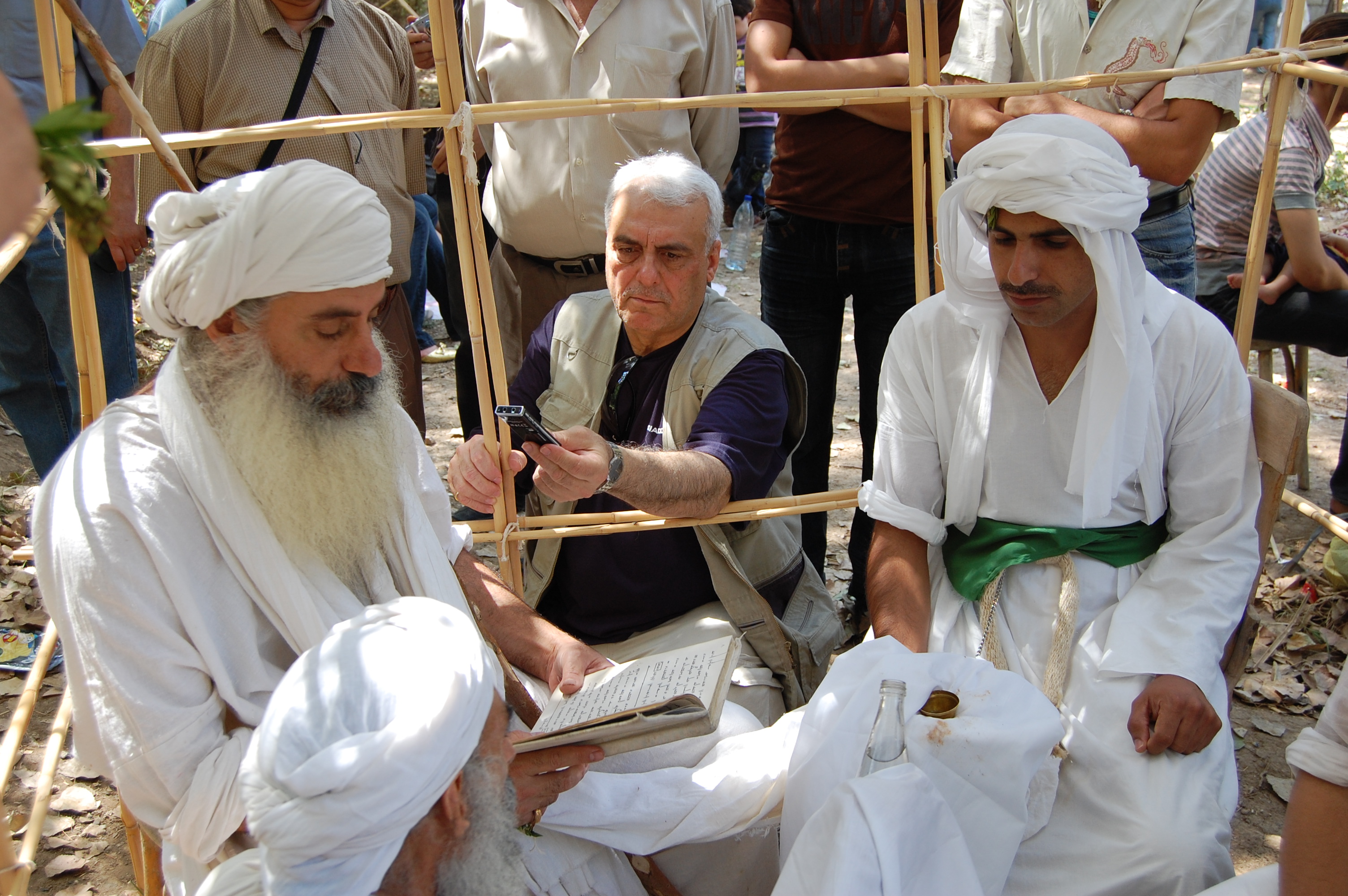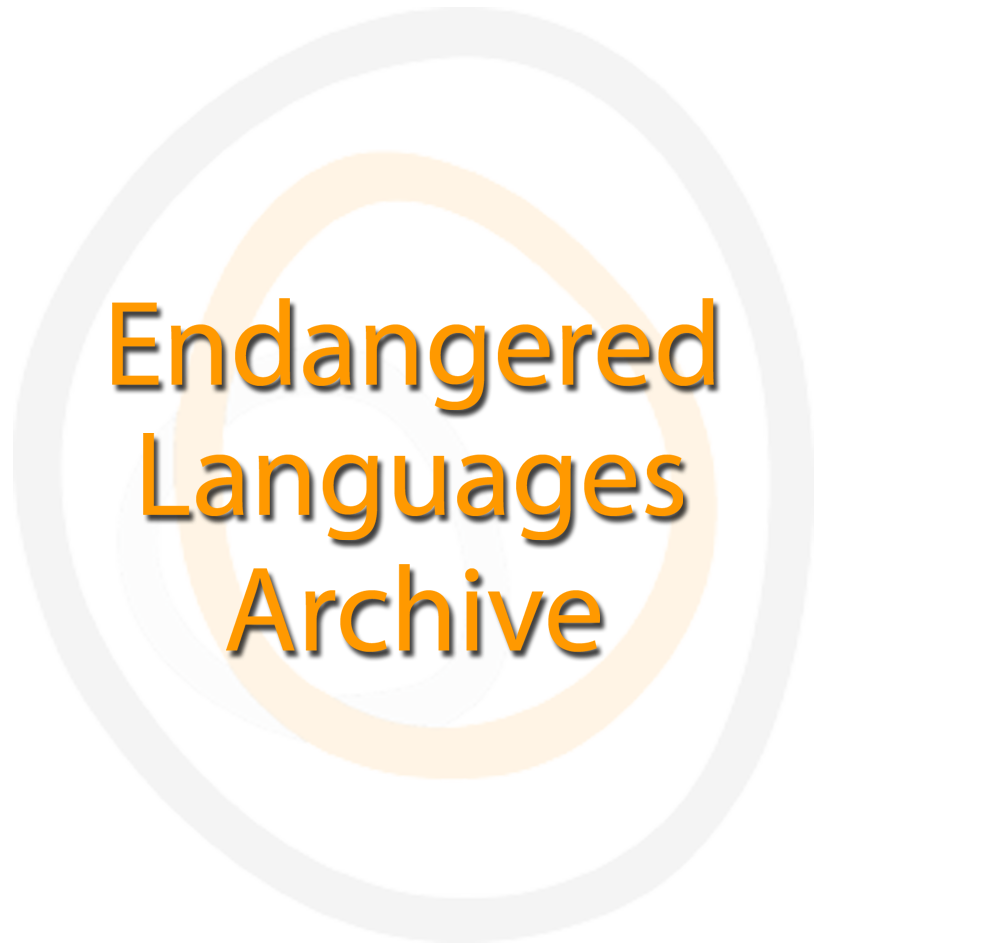Documentation of the Mandaean’s Rituals

Sabah Aldihisi, the researcher, among attendees of a wedding (May 2006). Landing page image for the collection “Documentation of the Mandaean’s Rituals”. Click on image to access collection.
| Language | Mandaean |
| Depositor | Sabah Aldihisi |
| Affiliation | SOAS University of London |
| Location | Iraq |
| Collection ID | 0176 |
| Grant ID | PPG0046 |
| Funding Body | ELDP |
| Collection Status | Collection online |
| Landing Page Handle | http://hdl.handle.net/2196/9bf2417c-b9bd-4cd9-9158-bd07f045192f |
Summary of the collection
This collection aims to provide lively and interesting records on classical Mandaean texts as well everyday vernacular conversation material in multimedia form for the Mandaean community so that future generations can easily learn them and enjoy their richness and as well as the wealth of rites of Mandaic faith.
For classical Mandaean texts and rituals, the collection includes recordings of rituals including the hymns and prayers recited by the priests while performing the rituals, as well as digital versions of manuscripts where possible.
For recordings of every day conversation in “raţna” or vernacular Mandaean, the researchers have recorded contemporary language usage from the few families in which “raţna” continues to be spoken.
Group represented
Mandaean speakers in Iraq and Iran
Mandaeans – which equals the Greek “gnostikos” – are the only Gnostic sect still in existence. Other Gnostic groups in Egypt, Syria and Palestine vanished long ago. The Mandaean community trace their history in Mesopotamia and Ahwaz province of Iran to the first century of the first millennium. After 2000 years of continued and flourishing existence in both Iraq and Iran, persecution against the minorities of Iraq after the second gulf war, especially the Mandaeans, forced them to flee their homeland and seek refuge in other countries. . The community has dispersed to Australia, the US, Canada and many European countries and almost no one of the youngest generation speaks the language. Therefore, their population of 40, 000 dramatically dropped to a few hundred, and very soon Iraq will lose its Mandaean community just like it lost the Jews half a century ago.
In this collection, there are recordings of priests and elderly members of the Mandaean community in Iran, Syria, Europe and Australia who are known for their accurate pronunciation of the language and long experience. Many priests had already welcomed the idea and expressed their willingness to assist in this project.
Language information
Mandaean is a Mandaic language spoken by an estimated 5,500 people in Iraq (Baghdad, Basra) and Iran, with reports of speakers also residing in the United States. The Mandaic script is written right to left (see Omniglot for examples). Alternate names: Mandaic, Mandi, Mandini, Modern Mandaic, Neo-Mandaic, Sabean, Sabe’in, Subbi. According to the ‘UNESCO Atlas of the World’s Languages in Danger of Disappearing’ Mandaean is considered the most endangered language in the Middle East. The classical Mandaean language is a type of eastern Aramaic, with features similar to those of the language of the Babylonian Talmud, in which the Mandaean liturgies are written. Some members of the Mandaean community, especially those in Iran, continue to speak Neo-Mandaic “raţna”, a modern version of this language.
Collection contents
This collection contains transcribed and translated speech and rituals of the Mandaeans, with the aim of preserving these for future generations and to enable young members of the Mandaean community to learn the language.
Collection history
The materials in the collection were gathered and prepared during the depositor’s research for his ELDP Pilot Project Grant from 2008 t0 2009.
Acknowledgement and citation
To refer to any data from the collection, please cite as follows:
Aldihisi, Sabah. 2014. Documentation of the Mandaean’s Rituals. Endangered Languages Archive. Handle: http://hdl.handle.net/2196/00-0000-0000-000F-B63B-C. Accessed on [insert date here].


